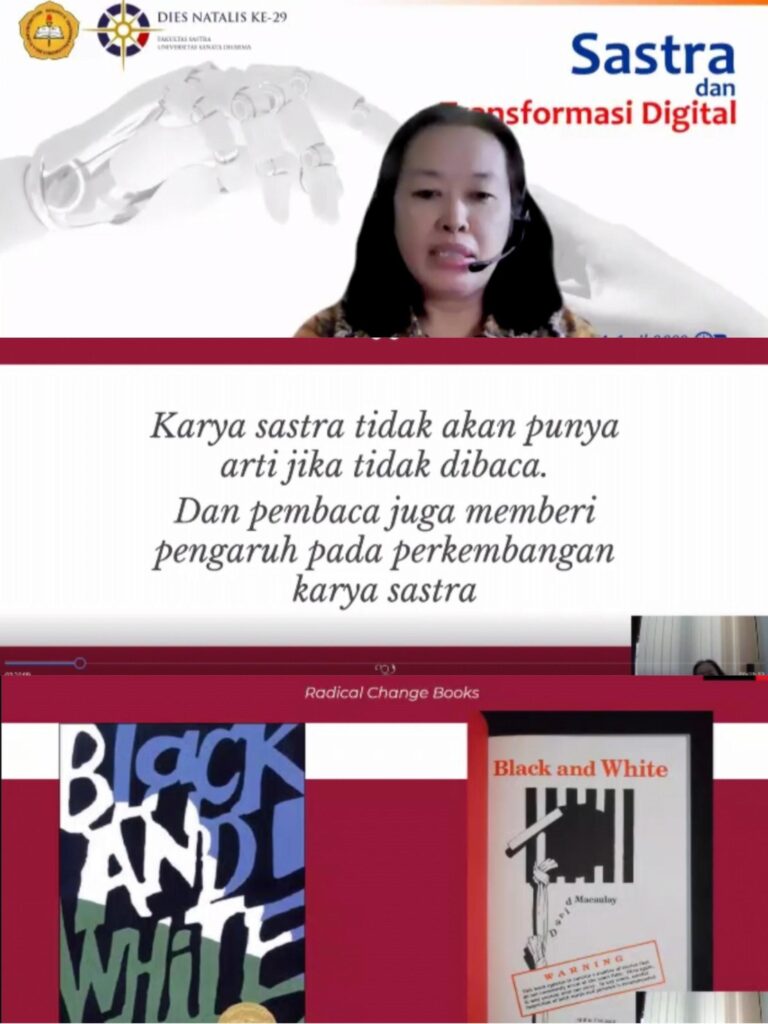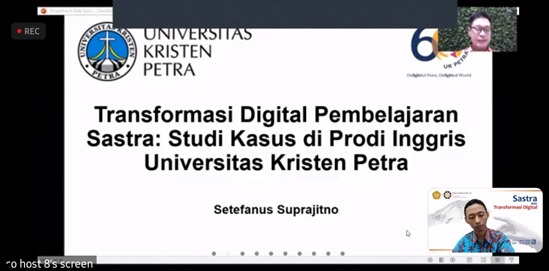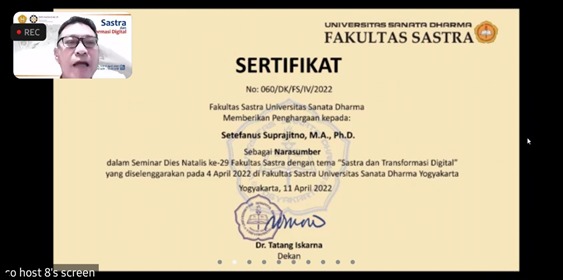
In celebrating its 29th anniversary, Sanata Dharma University’s Faculty of Letters held a festival seminar with “Literature and Digital Transformation” as its theme. The first day of the festival was held on 4 April 2022 from 11.00 to 13.00 WIB and was followed by the second day on 11 April 2022 at the same time.
In the first session, Dra. Theresia Enny Anggraini, Ph.D. as the first day’s main speaker shared her paper titled “Digital Transformation in Children’s Literature in the United States of America”. Unlike the ordinary topic in which people tend to focus on how the authors impact the readers, Dra. Theresia Enny Anggraini, Ph.D. tried to focus on how the readers and their situations affect the author and their works.
The change of the readers’ generations plays a big part in the development of literary works. The readers who are part of the baby boomers, Generation X, and Generation Y are used to traditional books. On the other hand, with the development and innovation of technology, the readers from Generation Z, Generation Alpha, and digital natives are accustomed to e-books. Moreover, in America, the development of Children’s Literature can also be seen through the model or the form of literary works such as multimodal books, radical change books, and wordless books. After the first session ended, the event was followed by the panel session which was divided into 5 breakout rooms. In each breakout room, two papers were delivered by the Faculty of Letters of Sanata Dharma University’s lecturers. Some of the papers are Sony Christian Sudarsono, S.S., M.A. with his paper titled “Hiperkoreksi pada Google Document”, Adventina Putranti, M.Hum. with “Tantangan dan Peluang dalam Pengajaran Penerjemahan di Era Google Translate”, “The Purpose of Sarcastic Utterances in Nigel Ng’s Comedy YouTube Channel: Uncle Roger Works at Food Truck” by Anindita Dewangga Puri, S.S., M.A., Drs. Hirmawan Wijanarka, M.Hum. with “Cinderella Formula: The Romance Begins”, “Penggunaan Kata Anak dalam bahasa Indonesia dari Perspektif Ekolinguistik” by Prof. Dr. Praptomo Baryadi I, and etc. Through this seminar festival, Sanata Dharma University’s Faculty of Letters hoped that literature will continue to thrive alongside digital transformation.
Journalist: Atalya Zarah Septirina
Editor: Baby Lois Augustine Nabasa & Fransiskus Nino Boby Laksono (QC)


